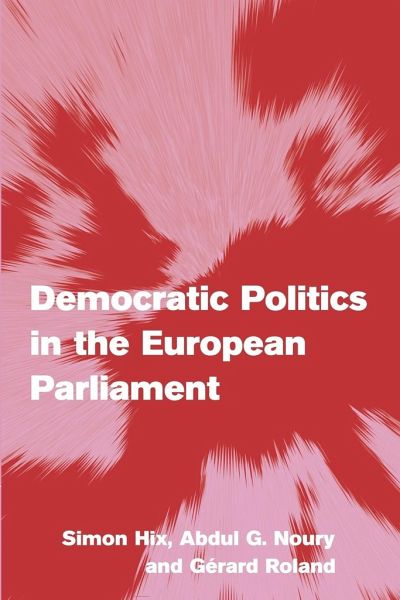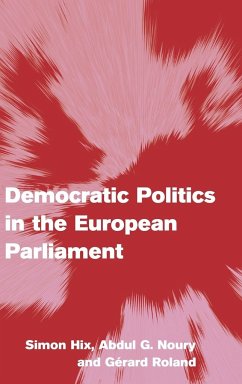
Democratic Politics in the European Parliament
Versandkostenfrei!
Versandfertig in 1-2 Wochen
42,99 €
inkl. MwSt.
Weitere Ausgaben:

PAYBACK Punkte
21 °P sammeln!
With the European Parliament comprising politicians from many different countries, cultures, languages, national parties and institutional backgrounds, one might expect politics in the Parliament to be highly-fragmented and unpredictable. By studying more than 12,000 recorded votes between 1979 and 2004 this book establishes that the opposite is in fact true: transnational parties in the European Parliament are highly cohesive and the classic 'left-right' dimension dominates voting behaviour. Furthermore, the cohesion of parties in the European Parliament has increased as the powers of the Par...
With the European Parliament comprising politicians from many different countries, cultures, languages, national parties and institutional backgrounds, one might expect politics in the Parliament to be highly-fragmented and unpredictable. By studying more than 12,000 recorded votes between 1979 and 2004 this book establishes that the opposite is in fact true: transnational parties in the European Parliament are highly cohesive and the classic 'left-right' dimension dominates voting behaviour. Furthermore, the cohesion of parties in the European Parliament has increased as the powers of the Parliament have increased. The authors suggest that the main reason for these developments is that like-minded MEPs have incentives to form stable transnational party organizations and to use these organizations to compete over European Union policies. They suggest that this is a positive development for the future of democratic accountability in the European Union.














